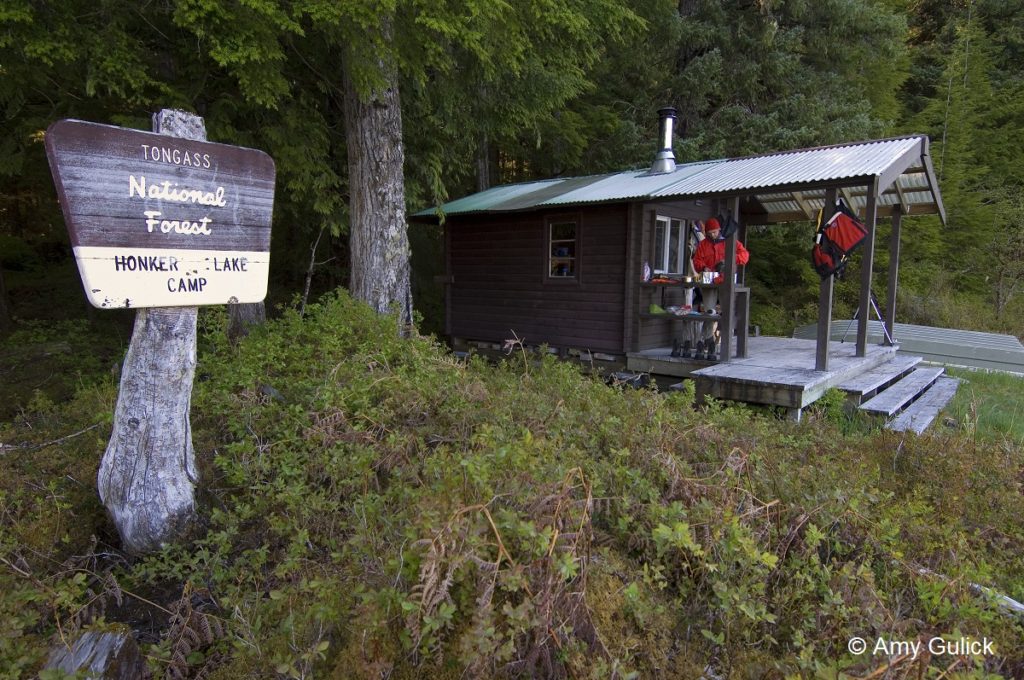On its 20th anniversary, new bill would write Roadless Rule into law

Today marks the 20th anniversary of the Roadless Rule, a hallmark conservation rule that has protected the most pristine, remote and wild parts of our national forests for two decades.
At the time of its publication in the Federal Register, the Roadless Rule was the most commented-on public rulemaking process in American history, receiving more than 1.5 million comments with 95% in favor of the Rule. For the past two decades, the Roadless Rule has protected 58.5 million acres in 39 states across the nation, including 9.6 million acres in the Tongass National Forest of Southeast Alaska. The Roadless Rule has protected recreation and wilderness values and ensured clean water for millions of Americans.
Marking today’s anniversary, Senator Maria Cantwell (D-WA) and Representatives Ruben Gallego (D-AZ) and Diana DeGette (D-CO) are reintroducing the Roadless Area Conservation Act, legislation that would codify into law the Roadless Rule, strengthening protections for nearly 60-million-acres of the nation’s most pristine forest lands. This is more critical now than ever, as the Trump administration recently finalized an Alaska-specific rule that removed Roadless Rule protections in the Tongass.

Preserving old-growth trees in the Tongass is an important piece to avoid exacerbating climate change. Research done by the Center for American Progress found that “one acre of old-growth forest is estimated to store nearly 70 tons of carbon in leaves, trunks, roots, and soil. In addition, each acre of old-growth forest has the capacity, on average, to sequester, or capture from the air, an additional 1,600 pounds of carbon every year.” As the largest intact temperate rainforest on earth, the Tongass serves as a critical carbon sink, storing more than 1.5 billion metric tons of carbon dioxide equivalent and sequestering an additional 10 million metric tons each year.

From its very beginning, the Roadless Rule has been under attack by the timber industry and its proponents. Members of the Alaska congressional delegation have sought its repeal in Alaska as part of their — unsuccessful — attempts to revive the logging of old-growth timber in the Tongass despite huge costs to taxpayers and the industry accounting for just 1% of the region’s jobs. However, the expansion of logging poses an enormous threat to the lifeblood of the region, the rivers and streams that are home to spawning salmon, and damaging those waterways would have a ripple effect across Tongass ecosystems.
Home to five species of Pacific salmon, the Tongass is a temperate coastal rainforest and one of the nation’s most important fisheries. Its salmon are a key link in the food chain for a wide variety of wildlife such as orca whales, the region-specific Alexander Archipelago wolves, and some of the largest concentrations of brown bears and bald eagles found anywhere in the world. Not only do the salmon provide for these animals, but the economy as well, constituting nearly a third of the state’s annual catch and nearly $1 billion in annual revenue. And more than 25% of the region’s jobs are directly tied to tourism or the fishing industry, both of which rely on a healthy and intact Tongass.

A return to old-growth logging is a backwards looking vision for the Tongass. This iconic temperate rainforest is where people come to see Alaska. Each year more than 1 million people come to experience glaciers flowing from the mountains into the sea and iconic wildlife that thrives in one of the largest remaining temperate rainforests in the world. It is critical that the Roadless Area Conservation Act be prioritized not just by the new Congress, but also by the incoming Biden administration. Permanent roadless protection in the Tongass and for nearly 60 million acres of national forests nationwide will ensure healthy ecosystems and sustainable economies across the country — and it will support a forward-looking future for Southeast Alaska.
Since 2001, the Roadless Rule has protected wild, undeveloped forests. Today, on its 20th anniversary, take action and tell @JoeBiden to #SaveRoadless and #ProtectTheTongass National Forest: https://t.co/N3fpEjYyH9 pic.twitter.com/vee0r6L5pR
— Alaska Wilderness League ❤️🌎 (@alaskawild) January 12, 2021
Thanks to @SenatorCantwell @RepRubenGallego @RepDianaDeGette for introducing the Roadless Area Conservation Act on the Roadless Rule’s 20th anniversary. Our country’s old-growth forests are the last vestiges of America’s truly wild places. https://t.co/rH5t1GfusA #SaveRoadless pic.twitter.com/WpBmtNt5Ig
— Alaska Wilderness League ❤️🌎 (@alaskawild) January 12, 2021
